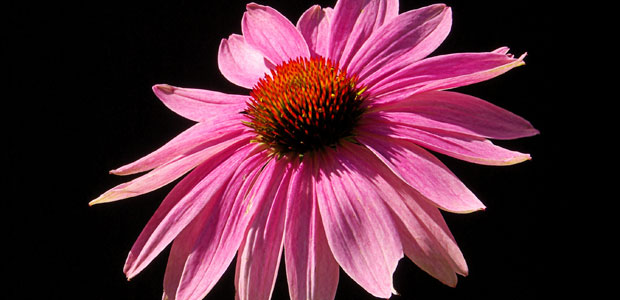Advertisement
Herbs for Immune Health
Strengthen your defences - naturally

Sometimes the immune system needs a little extra support. Take cold and flu season for example, when nasty germs seem to be flying around everywhere and anywhere.
How are germs spread?
During cold and flu months we spend more time indoors, where airborne viruses can easily pass from one person to the next.
It’s thought that viruses are spread mainly by droplets that are made when people who have a cold or flu cough, sneeze, or talk. Those little drops can be inhaled by others or land in the mouths or noses of those nearby.
Take a herbal boost
Several herbs can help boost immune health, helping to prevent colds and flu, shorten their duration, and reduce symptoms once they’ve started.
Echinacea
A perennial herb native to North America, echinacea is one of the most popular medicinal herbs used today. Commonly cultivated species of this herb include Echinacea angustifolia, Echinacea pallida, and Echinacea purpurea.
Echinacea has been the subject of many clinical trials, some of which have shown it to be effective in reducing the number and severity of symptoms among those who felt a cold coming on. Further, echinacea tea may help sufferers recover from a cold or flu more quickly.
Astragalus
Astragalus, or Astragalus membranaceus, has been used in traditional Chinese medicine for centuries. Native to China, Mongolia, and Korea, astragalus contains antioxidants, which protect cells against damage caused by free radicals.
Astragalus is used to support the immune system, lower blood pressure, treat diabetes, and protect the liver. It appears that astragalus has antiviral properties and may stimulate the immune system, helping to prevent the onset of colds and influenza.
Licorice
Licorice (Glycyrrhiza glabra) can be found growing up to seven feet tall in the wild in parts of Europe and Asia. However, its extensive root system is what impresses, both biologically and medicinally.
Licorice root is used as a demulcent (a soothing, coating agent) and as an expectorant that rids phlegm and mucous from the respiratory tract.
Safe use of herbs
Many herbs contain compounds that can cause side effects and that can interact with other herbs, supplements, or medications. It’s important to talk to your health care practitioner about what supplements are best for you.





